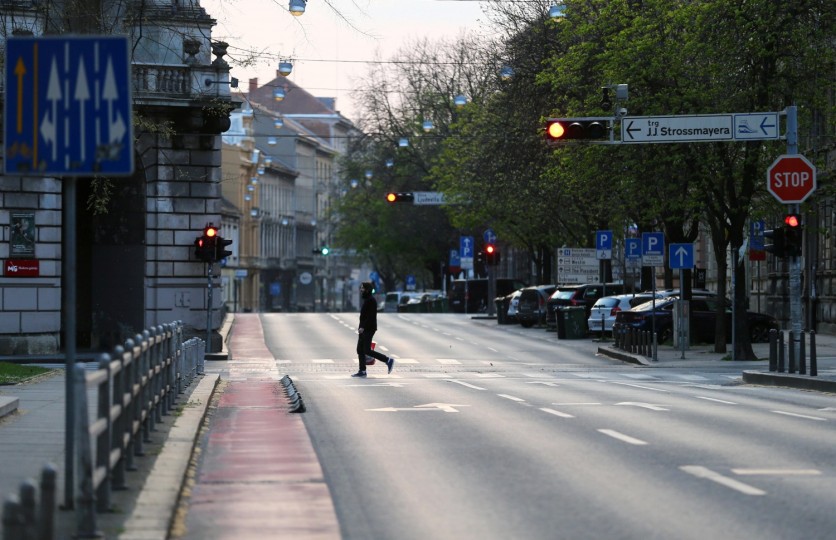Google and Apple laid out the challenge to explain how their contact-tracing abilities might take on the COVID-19 pandemic: convincing people enough to use the apps to fight coronavirus.

The entire project -- a mission that two of the world's biggest tech businesses teamed up for about three weeks ago -- might fail if they couldn't convince enough people to sign up.
The "move speedy and spoil things" mind-set has created innovations. Still, these are also profoundly broken public trust in technology.
Apple, Google, and countries worldwide taking advantage of a contact-tracing app climbed a mountain of skepticism due to tech giants' long history of statistics abuses. Facebook trying "to bring the world closer together," gathered millions of people's data for targeted advertising. Google Maps is facing complaints about location-data tracking and allegedly collecting students' biometric records. Apple previously took shots at its rivals for their tendency to share their users' facts.
Adoption rate
Apple and Google failed to provide a specific population they'd need to actually opt-in for their touch-tracing solution to work. They only referred to that every new man or woman who downloads the app has an exponential impact.
But an Oxford University study determined that governments need 56% of the population to apply the app to help forestall COVID-19's spread. The research used a computer model of a city with 1 million people, based on the UK's demographics and mobile smartphone usage.
"Our results suggest a digital contact-tracing app if carefully implemented alongside other measures, has the potential to substantially reduce the number of new coronavirus cases, hospitalizations, and ICU admissions," Christopher Fraser, the senior researcher behind the report, said in a post.
Fraser suggested the pandemic could end if approximately 60% of the population use the app. Even with lower numbers of app users, the study estimated a reduction in coronavirus cases and deaths."
In Singapore, the government national improvement minister told the Straits Times that 75% of the population would want to download the country's TraceTogether contact-tracing app for it to be certainly effective.
ALSO READ : Australia to Use Singapore's Contact Tracing App as New Zealand Opens Up Its Aussie Borders
But the adoption rate needed in other countries would not match the current acceptance rate. A Pew Research Center study discovered that 60% of Americans believe location monitoring won't make a difference in limiting COVID-19's spread. Only 45% think tracking human beings who've had contact with an infected person is acceptable.
The complete machine of touch-tracing apps is constructed on trust, from getting human beings to put in the apps to how human beings use them, the ACLU explained.
And no matter all the assets afforded through governments and era companies, there could be a scarcity of trust.
ALSO READ : Apple and Google's Contract COVID-19 Tracing Apps Cannot Be Mandatory, Silicon Valley Claims
Trust fall
Any contact-tracing setup, which includes Apple and Google's applications, will need to gain public trust for the device to work. No one has an entire solution to the trust dilemma, but one group gave some advice.
The ACLU proposed a set of guidelines that could make sure privacy and transparency for touch-tracing services. The suggestions include complete opt-in -- nobody can force you to apply the app, whether it's a government agency, a business, or a school.
The touch-tracing companies might also want to ensure that the collected facts would be used in a limited time and be destroyed after use. They'd need to present people a way of verifying that. There would additionally need to be evidence that the system was beneficial to public health efforts and a commitment to shutting down the service if it wasn't practical.
"The promise that Apple and Google will shut the API off is very welcome," Jennifer Stisa Granick, the ACLU's surveillance and cybersecurity counsel, told CNET.
Even if a touch-tracing app accompanied all of those hints, it's a prime hurdle to win trust for a provider that is basically monitoring people on their phone. People will have to see the apps as a great benefit for their health in preference to a surveillance risk.
French security researcher Baptiste Robert said one can not push the same app at all smartphones in a country. He explained people will continually be suspicious. "This isn't always technical, however extra a human sciences thing," Robert added.
ⓒ 2025 TECHTIMES.com All rights reserved. Do not reproduce without permission.




